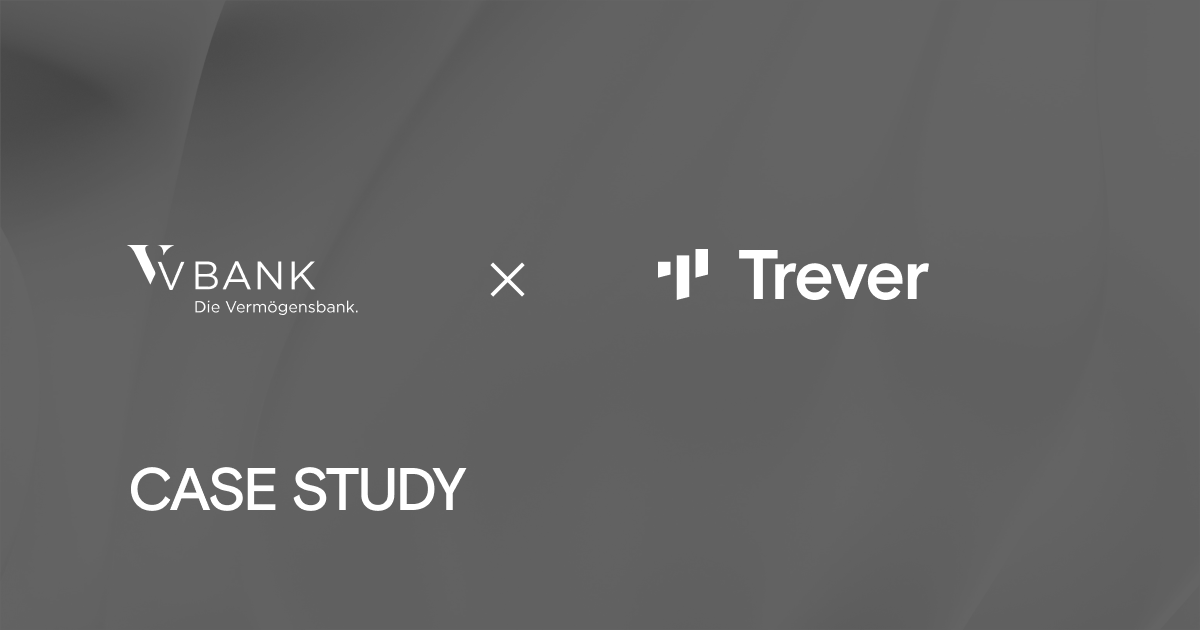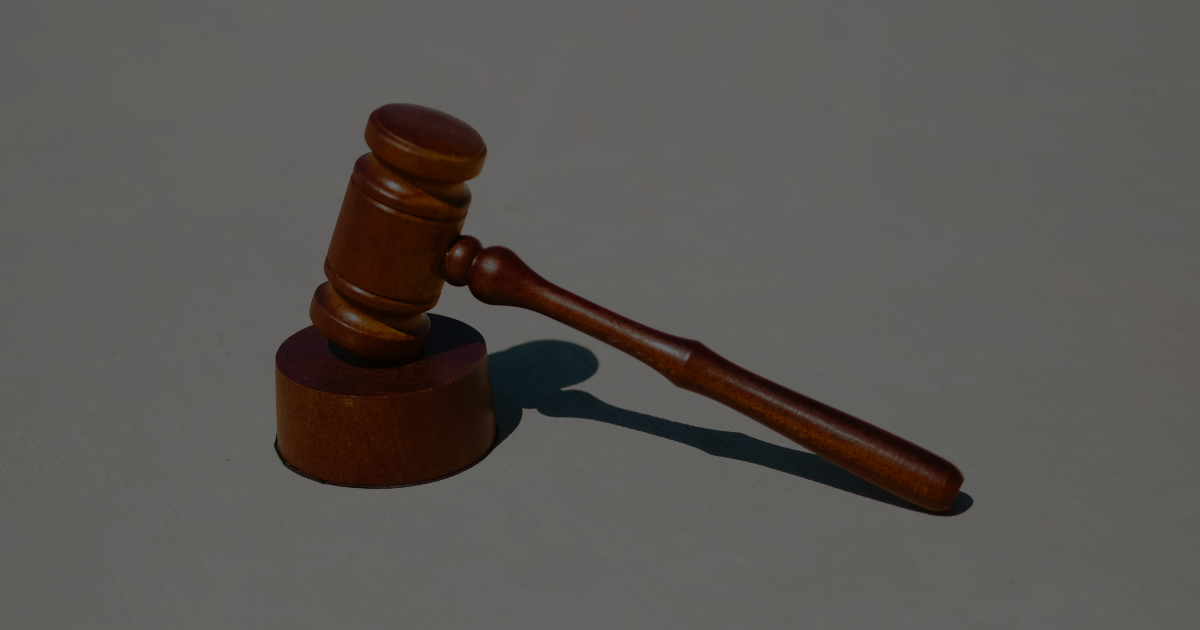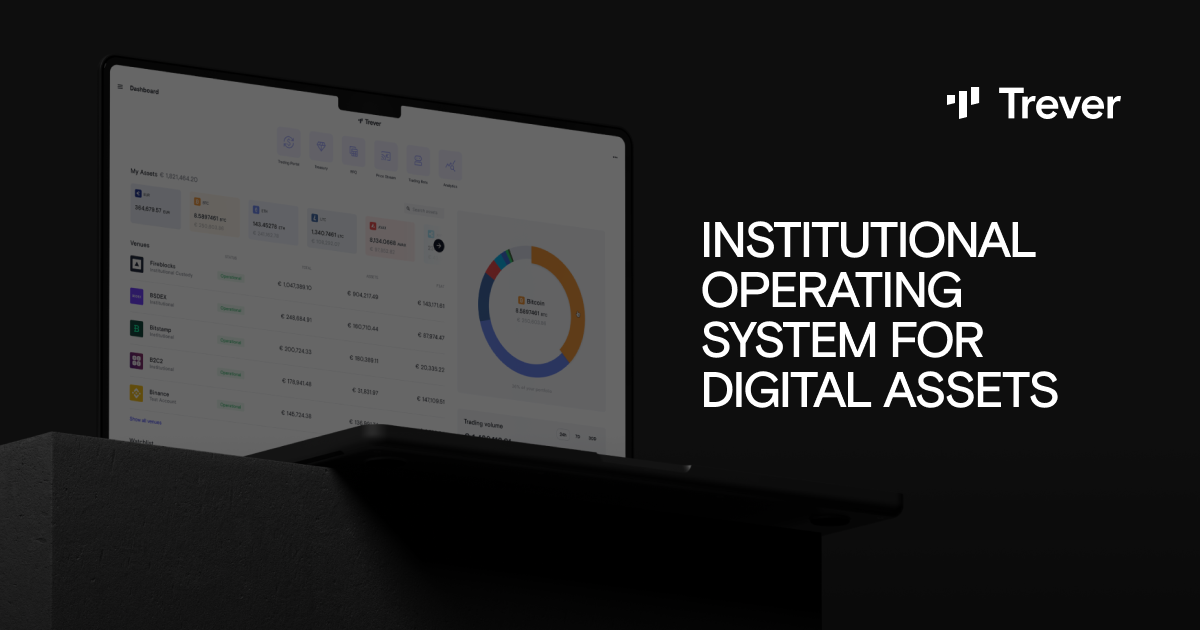Why Financial Institutions should focus on Digital Assets now
Have you ever thought about integrating digital assets institutionally? Find out why getting 'ready' for digital assets is like a marathon and why institutions should get up and running now.

Getting 'ready' for digital assets is like a marathon! Success requires solid preparation, the right tools, and a clear goal to reach the finish line. Beyond having the proper equipment, it’s crucial not to miss the start when everyone else is getting ready. The same principle applies to digital assets. Trever provides the technology and infrastructure you need to get started quickly and achieve success.
The benefits of focusing on Digital Assets
Digital assets are any assets that are issued on the blockchain, such as digital securities, cryptocurrencies, stablecoins, etc. The integration of digital assets offers significant benefits such as cost reduction, risk mitigation and reduced dependency on centralised entities.
These benefits arise primarily from the programmability of smart contracts, which can be used to make operational processes more efficient or automated. Smart contracts are pieces of software, not contracts in the legal sense, that extend the utility of blockchains from simply recording financial transaction entries to automatically implementing the terms of multi-party agreements (Upgrading Blockchains, 2016.).
The advantages of integrating digital assays are:
- Cost reduction: The distributed ledger technology (DLT) behind digital assets reduces the number of intermediaries that traditionally play a role in the settlement of bonds and securities (e.g. clearing houses, central securities depositories, etc.). Fewer parties involved means lower fees and settlement costs.
- Risk mitigation (counterparty risk) through real-time settlement: Traditional bond and securities transactions often take several days to settle (T+2). Depending on the complexity of the transaction, settlement can even take three days or more. With blockchain technology, transactions can take place in near real-time, significantly increasing efficiency and reducing counterparty risk.
- Less reliance on centralised authorities: The decentralisation resulting from DLT reduces the need for central custodians. The introduction of a crypto securities registrar will fragment this market.
Summary
To take full advantage of digital assets, financial institutions need an infrastructure designed for digital assets. Traditional legacy systems were originally designed to manage traditional financial instruments and are often unable to meet the specific requirements of digital assets. This calls for innovative solutions that can seamlessly integrate digital assets into existing processes to make operations more efficient, secure and future-proof.
The digital asset market has already kicked off. Now is the time for financial institutions to take action to ensure they do not miss out.
Source: Upgrading blockchains. (2016). Deloitte Insights. https://www2.deloitte.com/us/en/insights/focus/signals-for-strategists/using-blockchain-for-smart-contracts.html
Disclaimer: The information provided on this website and in blog posts is for general informational purposes only. It does not constitute legal or financial advice and should not be interpreted as such. In particular, this information does not constitute an offer or solicitation to buy, sell, or trade any assets or digital currencies.
Please note that Trever GmbH is neither licensed under the Austrian Securities Supervision Act (Wertpapieraufsichtsgesetz 2018, WAG 2018) or the German Commercial Securities Authorization Act (Gewerbliches Wertpapierberechtigungsgesetz, GWB), nor a licensed credit institution. Trever is not registered as a financial service provider and do not offer investment advice or similar services. The views expressed in the content are solely those of the author and are subject to change without notice.
Trever GmbH assumes no liability for any decisions made based on the information provided. The use of this content is at your own risk. We recommend that you seek advice from qualified professionals and conduct your own independent evaluation of the legal and financial implications before making any investment decisions.
Recent stories

Flexible, Secure, Scalable: The key to a future-proof Digital Asset Banking Infrastructure
The financial industry is undergoing a profound transformation and digital assets will play an important role in shaping its future. This case study delves into how V-Bank AG streamlines it’s digital asset operations with Trever’s Digital Asset Operating System, to stay ahead in this dynamic landscape.

These 5 Digital Asset Classes are Driving Institutional Interest
In the past years, digital assets are expanding rapidly. To create a secure and transparent environment, frameworks of the EU and further global regulators are coming into force. These milestones empower institutions considering more and more types of digital assets.

Tokenized Securities are gaining momentum: An Overview
The digital asset ecosystem continues to evolve in high speed and relevant regulatory standards pave the way for digitizing assets. Among them, tokenized securities are growing in popularity.

These 3 Compliance Regulations are essential when offering Crypto Assets
If your institution want to offer crypto assets, you need to be aware of a wide range of compliance regulations. Trever knows the requirements very well from working with financial institutions and now provides an overview of which compliance standards are essential.

Leading Financial Institutions rely on Trever - this is why
Learn more about Trever and how it enables financial institutions to securely and efficiently trade, transfer and manage digital assets such as crypto securities, cryptocurrencies, stablecoins, etc.

Cooperation Announcement: Trever x Tuum
The partnership between Trever and Tuum, a leading next generation core banking platform, empowers financial institutions to stay ahead in a rapidly changing market that requires high flexibility and efficiency.

Trever Accelerates European Market Growth for Digital Asset Infrastructure
Trever continues fuelling its growth in the European market with a €2.4 million seed investment. The software provides a compatible infrastructure and enables trading, transfer, and bookkeeping of digital assets.

Trever pioneers institutional software for digital assets
Trever is shaping the financial sector with software for managing digital assets. Now the founders talk about how Trever came about and what motivates them to rise in the market.

Hyphe, Tangany and Trever collaborate on all-in-one digital assets solution, Launchpad
Launchpad partnership drastically reduces time-to-market for institutions, combining digital asset trading, custody and order management in a single solution.

Cooperation Announcement: Trever x Tangany
As a BaFin-regulated custodian, Tangany sets the standard with its B2B solution for secure custody of blockchain-based digital assets.

